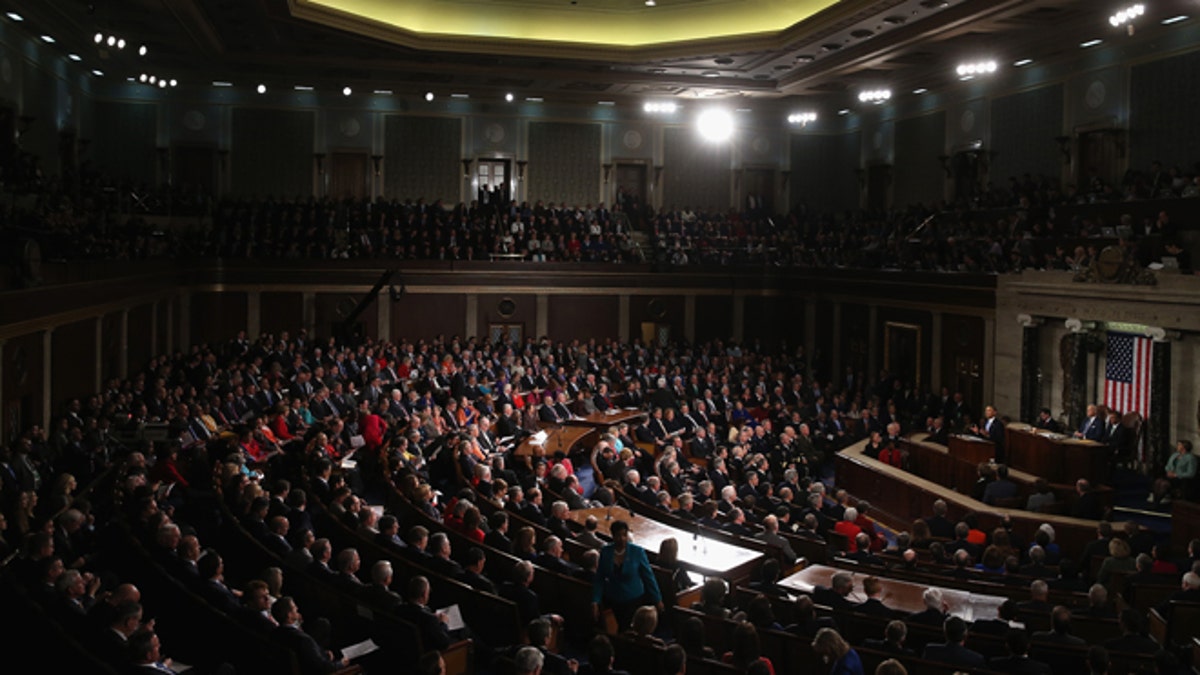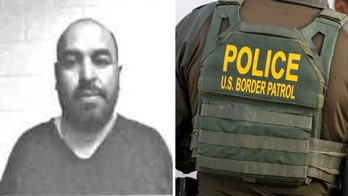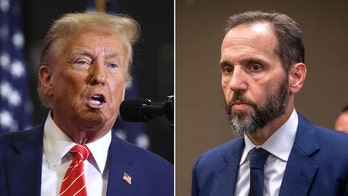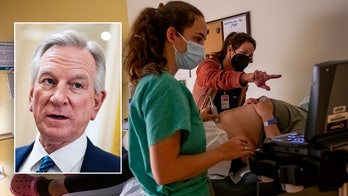
WASHINGTON, DC - JANUARY 28: U.S. President Barack Obama delivers the State of the Union address to a joint session of Congress in the House Chamber at the U.S. Capitol on January 28, 2014 in Washington, DC. In his fifth State of the Union address, Obama is expected to emphasize on healthcare, economic fairness and new initiatives designed to stimulate the U.S. economy with bipartisan cooperation. (Photo by Mark Wilson/Getty Images) (2014 Getty Images)
While much has been made about the historic nature of this year’s presidential election – how the United States could see its first female president, or its first reality television star president – there are a number of down-ballot races where the winner could also make history.
And Latinos appear to be leading the charge when it comes to becoming a trailblazer on Election Day. This year could see the first Latina – or two – elected to the U.S. Senate and the first Dominican-American in Congress. And Florida, with its burgeoning Puerto Rican population in the central part of the state, could send the state’s first Boricua to congress.
“This is a very exciting election,” Arturo Vargas, executive director of NALEO Educational Fund, told Fox News Latino. “This is part of the evolution of the Latino community in the U.S. This is what will help us make real gains in the political system.”
This comes in a year when two Cuban Americans – Florida Sen. Marco Rubio and Texas Sen. Ted Cruz – were serious contenders for the GOP presidential nomination.
“It’s already been historic because we did have two Latinos candidates on the Republican presidential debate stage,” Mary Ann Gómez, the president of the Congressional Hispanic Leadership Institute, told FNL.
In terms of the U.S. Senate, two Latinas – former Nevada Attorney General Catherine Cortez Masto and Rep. Loretta Sanchez of California – are both vying for seats in hotly contested races.
Cortez Mastro, a Democrat and granddaughter of Mexican immigrants, is in a tight race in Nevada as she battles Republican Rep. Joe Heck to replace longtime Sen. Harry Reid, who is retiring at the end of his term. Currently the Real Clear Politics polling average has Heck leading by three points, 44 percent to 41 percent.
On the stump, Cortez Masto has made direct appeals to the Silver State’s burgeoning Latino population – saying the country has provided her “the opportunity to be elected as the first Latina U.S. senator in U.S. history” while demonizing her opponent as being someone in favor of Republican presidential nominee Donald Trump’s harsh rhetoric on immigration.
“The message that Donald Trump is sending is getting [Latinos] energized,” Cortez Masto told Fox News Latino. “He called Mexicans rapists and criminals. It energizes people to come out and vote against Donald Trump.”
She added, “Congressman Heck has not said one thing to take on Donald Trump about this message of hate.”
Political observers say that Cortez Masto has a good shot at making history because of the growing political influence of Latinos in the state.
“Nevada has been transformed in its politics because of the Latino vote,” Vargas said.
In neighboring California, Sanchez faces a tougher challenge as she tries to upset her rival, fellow Democrat and the state’s current attorney general, Kamala Harris, to replace retiring Sen. Barbara Boxer. Sanchez is currently trailing Harris by 13 points and there have been reports that she is losing ground among Latino supporters in the closing weeks of the election season.
“You can see that among Latinos, the initial support for Sanchez had a lot to do with the recognition that she had a Latino surname,” Field Poll Director Mark DiCamillo told the San Jose Mercury News. “That put her in the early lead (with Latinos). Now more voters at least have some inkling of who the candidates are.”
Harris recently got a boost from some of the state’s Latino leadership when she earned the endorsement of State Senate President Kevin De Leόn, Sen. Ricardo Lara and former Assembly Speaker Fabian Núñez as well as the backing of President Barack Obama.
On the east coast, Adriano Espaillat is hoping his immigrant story can propel him to be the first Dominican-American in Congress.
After winning the Democratic primary in a strongly Democratic district that includes Harlem and parts of the Bronx, Espaillat is heavily favored in November's general election to succeed the long-serving Rep. Charles Rangel, who is retiring.
It would break new ground for the historically black district, which includes Harlem and has been represented by only two African-Americans, Rangel and Adam Clayton Powell Jr. before him, for more than 70 years – even though it recently became a Hispanic-majority district.
“Espaillat’s candidacy represents the growing diversity of different Latino groups in our political system,” Vargas said. “There have been only a few majority Latino districts that were not represented by a Latino and Charley Rangel’s was one of them.”
In Florida, while he may not be the first Puerto Rican in Congress, Darren Soto is hoping to become the first Puerto Rican to represent the Sunshine State on Capitol Hill.
Soto, a state senator who earned the backing of Democratic nominee Hillary Clinton, will face off against Republican Wayne Liebnitzky in November for a seat representing Florida’s Democratic-leaning 9th Congressional District.
The Florida state senator is expected to get a boost in his race from the recently burgeoning Puerto Rican population in his district, which represents parts of Orlando as well as Kissimmee and St. Cloud.
Thousands of Puerto Ricans have moved from the island to Florida in the past year to escape the crippling economic situation. And Soto is hoping that they will turn out in November to cast their vote for their fellow Boricua.
"I'm also so proud, con mucho orgullo, (with a lot of pride) that we are continuing on a historic run, one that represents the culmination of over a million Puerto Riqueños and millions of Hispanics here in Central Florida and beyond to be the first Puerto Rican elected from Florida and first Hispanic elected from central Florida," Soto said back in August.
While Latino activists and experts agree that this November could be historic for the community, they also warned that history will only be made if Hispanic voters show up and cast their ballots.
Of the eligible 24 million eligible Latino voters in 2012, less than half (48 percent) showed up to vote – a figure that has remained relatively unchanged over the last four presidential elections and on par with how non-Hispanic whites voted in the 2010 midterm elections.
In 2016, there is a record 27 million eligible Latino voters, but how many of those will register and vote in November is still very speculative.
“We want to make sure that our voices are heard,” said Gómez of the Hispanic Leadership Institute, “and the only way to do that is to have a seat at the table.”




